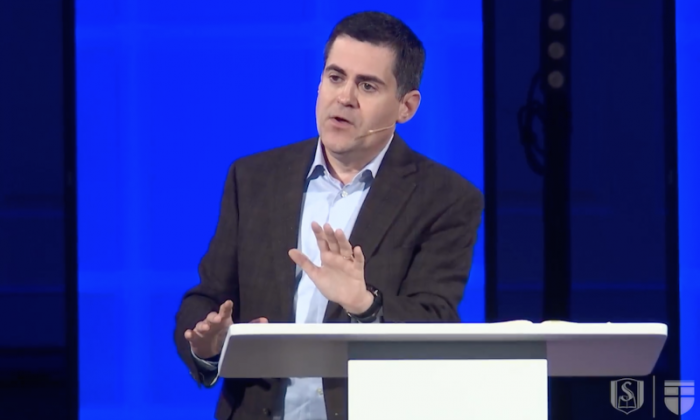Russell Moore: We Are Living in a Pre-Christian, Not Post-Christian Society

Ethicist Russell Moore has rejected the idea that society finds itself in a post-Christian state, explaining that there never was a "golden age" of faith.
"I do not believe that we're living in a post-Christian society if you define Christian the way that the New Testament does. When people ask me that, I usually say we're living in, at best, a pre-Christian society. I don't think there's a golden age in the past where there has ever been a nostalgic Christian society," Moore said in a video posted by Crossway on Thursday.
Moore, who is president of the Ethics & Religious Liberty Commission of the Southern Baptist Convention, said that culture has been falling apart not just recently, but since the time of Adam and Eve, as shown in Genesis in the Bible.
"Every generation since then has manifested fallenness and brokenness — just in different ways. There are different challenges in each generation, but they're always there," he argued.
He clarified that he believes that society is now in a "post-pretend-Christian" state.
"There was a previous era when people had a certain basic understanding of biblical truths and some connection to the church. That brought some benefit because, in many cases, there was some sort of stable understanding of morality. But it also brought a lot of drawbacks because a nominal Christianity doesn't save," he said.
Moore warned that the dangers of nominal Christianity is fooling people into thinking that they are reconciled with God in cases where they are not.
He said that beyond such challenges, there is also an opportunity to preach the Gospel similar to the way when it was first preached, to the "decadent, polytheistic" Roman empire.
"And the Gospel was able to speak, stand, and save. I think the same is true now," he concluded.
Many, including columnist David French, have used the term "post-Christian" when describing the state of America today.
French argued in the National Review last week that the erosion of Christianity has not brought a more tolerant and pluralistic society, but is deepening cultural divisions.
"Remove from the public square biblical admonitions such as 'love your enemies' and the hatred has more room to grow. When the fruits of the Spirit — love, joy, peace, forbearance, kindness, goodness, faithfulness, gentleness, and self-control — wither, then the culture is far more coarse," French said.
He positioned that a culture that lacks a common moral language and common religious culture "devolves into tribalism."
"Secular progressives have long seemed to assume that as Christianity receded, their own worldview would advance: Post-Christian America would look like post-Christian Europe, where it seemed that a particular worldview had largely prevailed," he wrote.
"Yet America has always been different from Europe, and post-Christian America will evolve in its own distinct way, with Right and Left, urban and rural filling the moral and spiritual vacuum, often in ways that their cultural competitors view with loathing and contempt," French predicted.
Here's Barna Group's ranking of the most "post-Christian" cities of America.





























